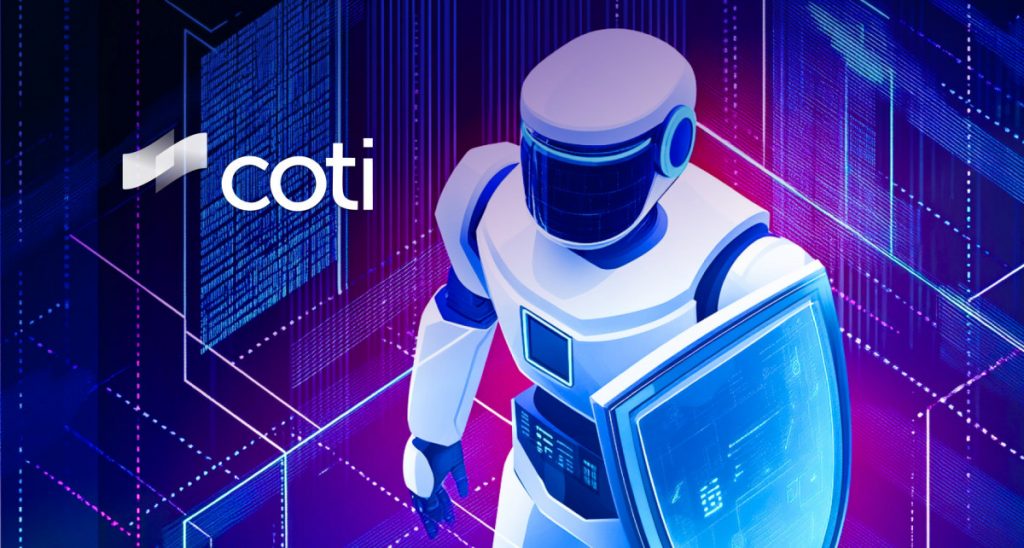Why Privacy Is Key to an AI-Powered Decentralized Web


In Brief
AI will revolutionize every aspect of our lives, starting with shifting from centralized, data-harvesting Web2 platforms to decentralized, privacy-protecting Web3 technologies, with COTI’s DeCC offering a key solution for safeguarding user data in the AI-powered future.

AI will completely change every area of our existence, starting with revolutionizing our online lives. Currently, most of our digital activities revolve around Web2 services, which are highly centralized, inherently permissioned, and deeply controlling. Put another way, they are run by huge tech corporations with unfavorable ‘terms and conditions’ designed to aggressively harvest our personal information for profit. While these apps are “free” to users, there are hidden costs in terms of our data and potentially wider freedoms.
In the coming era of AI, this model risks becoming terrifyingly exploitative if power remains with tech giants. In this article, we argue that the future of AI must be connected to Web3. This pathway offers a permissionless version of the web, based on decentralized technologies like blockchain, where user data is protected and their rights preserved.
In order to facilitate the delivery of AI-powered Web3, we need a robust, scalable privacy layer. Without this, we will not be able to adequately protect users as they go about their business on-chain. With this in mind, COTI has developed a lightweight and flexible solution for decentralized confidential computing (DeCC) that can allow users to retain full control of their personal data– even on-chain and with permissioned access, fit for the oncoming era of AI & Web3.
So, What Does the Decentralized Web Look Like?: From Search To Agents
ChatGPT, DeepSeek, and other chatbots are already taking over from search engines like Google. These are examples of AI agents – autonomous or semi-autonomous programs capable of analyzing inputs and information and making reasoned decisions. Instead of returning a list of relevant pages, ChatGPT can assimilate all the data it finds and provide a single, helpful result. It takes the raw search results and does the job of filtering and synthesizing them, a job that we would once have done ourselves, only far more quickly and efficiently. As OpenAI CEO Sam Altman has said: “AI agents will transform the way we interact with technology, making it more natural and intuitive.”
Agents are fast replacing old-style web searches and much else besides helping users access all kinds of services effectively. To do so, they will accumulate large amounts of personal and “intent” data: information that signals what users are interested in and what they might do. That data constitutes a very valuable resource to companies and organizations of all kinds. However, it also poses a risk to users.
Since agents are autonomous, their capabilities are maximized when they are able to exchange information between themselves, which could include the exchange of value. That becomes very difficult with a standard Web2 model since TradFi is not structured to enable automated payments by non-human entities – especially not micropayments and especially not international payments.
For Web3, it’s completely different. Smart contracts will be the native and default way that agents do business. Users will sign up to and interface with Web3 services using smart contracts via their AI agents. Payments will necessarily use cryptocurrency since it integrates seamlessly with smart contracts and allows permissionless, borderless, programmable transactions of any size.
The Agent Economy Runs On Web3
Imagine a world – coming soon – in which users have their own personal AI agents, which hold data representing a rich profile of their circumstances and intent. Essentially, this is the digital representation of “you”. These agents will carry out diverse tasks, from work and recreational activities to e-commerce. Because agents will have so much information about users and because their algorithms are so powerful, they will be able to suggest solutions that users had never even considered themselves.
Users will be able to grant other agents permission to interact with their data and allow their own agents to carry out various tasks. Want to book the perfect holiday? Your agent will share your interests, preferences, budget, availability, and dozens of other variables to make tailored suggestions. Interested in certain investment opportunities? Your agent will search the market for assets that meet your preferred criteria, rank them in terms of risk, and make suggestions for how to structure your portfolio. Looking for a new job? Your agent can assimilate all open opportunities across the whole market to find a shortlist of ideal options focused on your skill set, experience, location, salary expectations, and more.
The new Web3 economy is already forming from many different “tribes” of users, organizing social media into interest groups – for work, gaming, commerce, and other activities. Users and agents will be able to pay and earn in crypto, with engagement being gamified and monetized to the degree that Web2 users can barely imagine today.
Unlocking AI in Web3 And Avoiding Dystopia
If you’re familiar with current Web3 services, you’ll know that this isn’t an unrealistic vision of the future. The shift has already started, with community-run apps based on blockchain attracting large numbers of users and AI playing an increasingly important role. A great example is PriveX, the intent-based perp-DEX, or NFA, a social trading app that aggregates a large number of social media feeds and community signals and offers AI-curated investment suggestions.
However, throughout all this, privacy is a vital missing piece. Agents need to access and process users’ information without compromising it, since the consequences of giving powerful AI free rein on our personal data at scale are unthinkable. Agents need to be able to interact with user data in encrypted form, carrying out machine learning operations without having access to the “plaintext”.
There is more than one approach to decentralized confidential computing, but this is where COTI’s technology shines. Based on garbled circuits – cryptographic protocols that securely compute functions on encrypted data – COTI’s Privacy-on-Demand solution offers a straightforward and efficient layer or wrapper for transactions and processes of all kinds.
The promise of Web3 is that it will place control back into our hands. This is the best and arguably only future we can allow for AI: A decentralized network of interconnected agents that ensures users’ self-sovereignty, safeguarding their personal information at every step. Their data must be theirs alone and cannot be sold or used in any way without their express permission.
This is how we move from a corporate-controlled Web2 that extracts value from users to a decentralized AI-powered Web3 that allows users to build value together and remain self-sovereign – safely, effectively, and fairly.
Disclaimer
In line with the Trust Project guidelines, please note that the information provided on this page is not intended to be and should not be interpreted as legal, tax, investment, financial, or any other form of advice. It is important to only invest what you can afford to lose and to seek independent financial advice if you have any doubts. For further information, we suggest referring to the terms and conditions as well as the help and support pages provided by the issuer or advertiser. MetaversePost is committed to accurate, unbiased reporting, but market conditions are subject to change without notice.
About The Author
Victoria is a writer on a variety of technology topics including Web3.0, AI and cryptocurrencies. Her extensive experience allows her to write insightful articles for the wider audience.
More articles

Victoria is a writer on a variety of technology topics including Web3.0, AI and cryptocurrencies. Her extensive experience allows her to write insightful articles for the wider audience.


















































